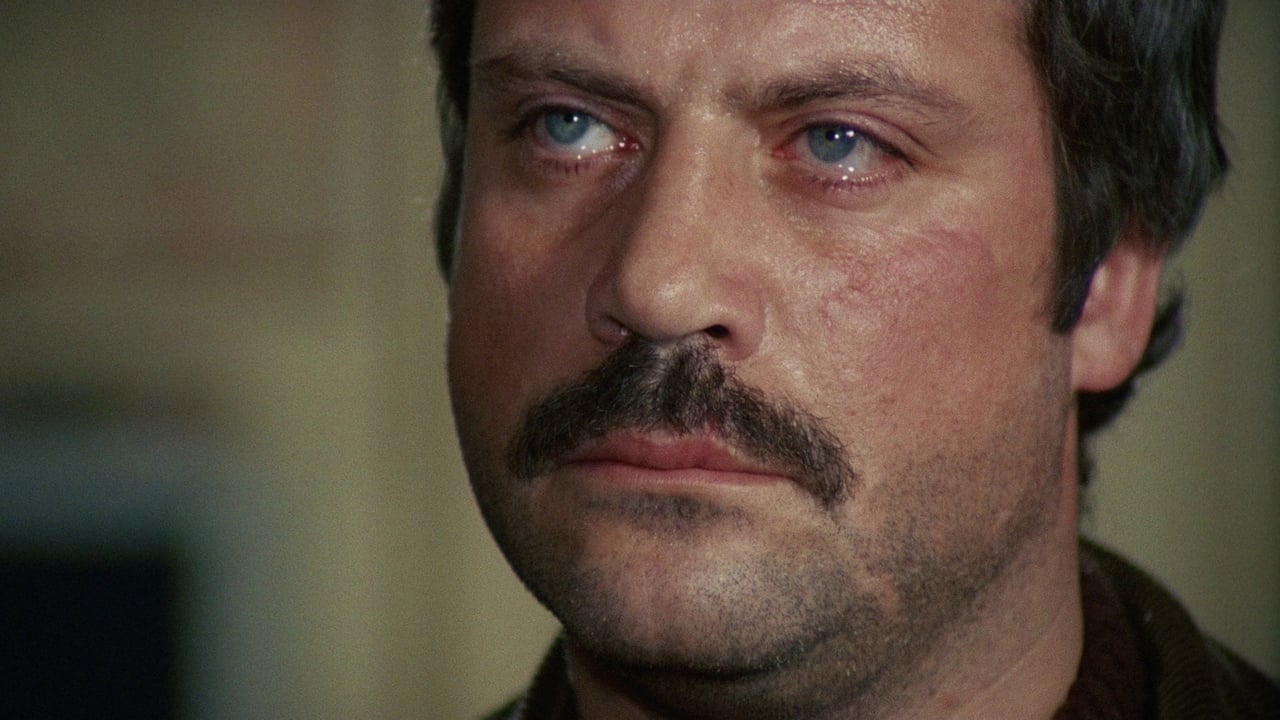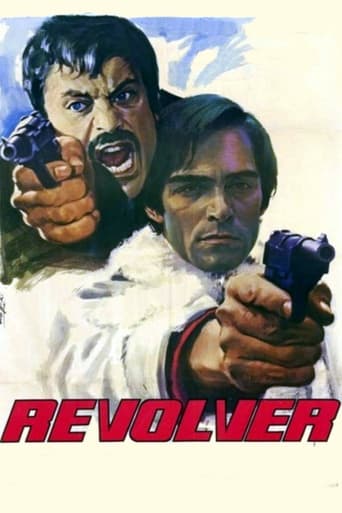

What makes it different from others?
... View MoreToo much of everything
... View MoreAn action-packed slog
... View MoreThe movie turns out to be a little better than the average. Starting from a romantic formula often seen in the cinema, it ends in the most predictable (and somewhat bland) way.
... View MoreOliver Reed rages at most of Italy and some of France and with good reason - his hot young wife has been kidnapped! He's the warden of a prison in Milan and someone wants him to release Milo (Fabio Testi) for reasons unknown. Even Milo doesn't seem to know why he's being released, no matter how many time Reed beats him up. Maybe it has something to do with that high profile assassination at the start of the film? But then, what does that have to do with that rock star guy?Reed has to break some rules to get Testi out, but this is no simple case of doing a swap and getting his wife back. After beating the crap out of each other several times, they have to learn to rely on each other to get to the truth of the matter, which will take them through the alps while trying to outrun a massive manhunt. There's too many twists to ruin so let's not go any further with the plot and let's talk about Oliver Reed. His red-faced rage at every single person involved in the kidnapping is a joy to behold (and drink fuelled by the sounds of it). He screams, swears, threatens, berates, assaults and even shoots his way through the film, and yet can still be loving and tender to his wife or calm when trying to subdue a suicidal inmate (a quick cameo by Sal Borghese). My favourite bit was when he was trying to convince a work colleague that nothing was wrong when at that exact moment the kidnappers call. The look on his face is priceless.Fabio Testi does good as Milo, a crook resigned to his life of crime who can't think of anything else but a big pay-off. Yet he too has a soft side, seen in the film's strong start as he carries the dead body of a friend along a canal to Ennio Morricone's moving soundtrack. In fact, by the end of the film he's as greatly changed as Oliver Reed's character too, as he does begin to see life outside of crime. Yet another good Euro-crime film that starts off making you wonder why you're being hit with seemingly unconnected scenes that all ties together nicely at the end, if you don't think about it too hard. It's also nearly two hours long so be prepared for that.
... View MoreAnother great and unconventional crime drama from those beloved Italians, this one made by master of class Sergio Sollima (SANDOKAN) and containing a greater depth of plot and character than one might expect from other pulp adventures from the time. This tough flick is great and interesting thanks to the unconventional plot and the raw, almost documentary-style camera work which follows the characters around a variety of European settings. The plot is complex and gets murkier as the film progresses, with multiple characters lurking around the edges who have no clear motives. At times the film ventures into the area of the psychological thriller as it puts the characters through tense situations, at all times leading to a climax that you just know won't be a happy one.Chief enjoyment comes from unlikely star Oliver Reed, playing a typically gruff character who is forced to confront his morals as the film progresses. Reed is great in the role, especially as he is forced to become more and more emotive as the film goes on, and he really fits into the role of the character nicely so that you forget that he's acting; personally I think this is one of the best performances I've seen from the underrated star. Fabio Testi is the criminal, Milo Ruiz, and puts in a genuinely good performance along with Reed, shining in a part that allows him to play a character rather than a wooden figure for once. The supporting cast is fine, especially Agostina Belli's frightened captive.BLOOD IN THE STREETS is more plot-centric than most and thus contains a lesser degree of action than you might expect, although Sollima does throw in one outstanding shoot-out in a street for action fans. Nonetheless the sheer level of twists and turns in the plot and the performances make it hugely engrossing. One last thing to mention: there's a fantastic and stylish score by the acclaimed Ennio Morricone which enhances the action no end. This combination of winning elements makes it one to watch.
... View MoreI had long wanted to catch this poliziottesco (which has never turned up on Italian TV) but was ultimately rather let down by it: the plot involves a buddy buddy partnership between two unlikely characters – prison warden Oliver Reed and petty criminal Fabio Testi. Director Sollima had already made the superior THE BIG GUNDOWN (1966) on similar lines (the “Cult Movie” website claims this is a remake of it but I don’t buy that, as the narrative takes a wholly different direction).The film, however, isn’t quite as engrossing as it should be and rather muddled into the bargain – but, at least, it looks good and is undeniably bolstered by a beautiful and typically effective Ennio Morricone score (reminiscent of his work, much later, on THE UNTOUCHABLES [1987]!). Reed is an ideally sturdy yet world-weary hero – but Testi is just okay in the role of his quarry/associate (though the English dubbing may have undermined his original performance), especially as he displays little of the cunning and deadly prowess which had characterized the Tomas Milian counterpart in THE BIG GUNDOWN…and, in any case, he’s ultimately established to have been merely a pawn in the game being waged! The female cast is comprised of lovely Agostina Belli (as Reed’s young wife, who’s kidnapped so as to ensure his collaboration) and Paola Pitagora (somewhat wasted as an underworld ‘groupie’ who briefly hooks up with Testi).Even if the film doesn’t have the socio-political scope of THE BIG GUNDOWN, this element is belatedly introduced towards the end – leading to a curiously downbeat (and cynical) finale. While not plentiful, the action sequences are certainly as efficiently handled as any in this type of film (Sollima made at least one more poliziottesco – VIOLENT CITY [1970], which I’ll be getting to soon); still, the director seems less at ease within the ‘urban jungle’ landscape than he was in the wide-open spaces provided by the Spaghetti Western milieu.The main supplement on the Blue Underground DVD is a 13-minute featurette consisting of separate interviews with Sollima and Testi. Among other things, the former admits to having been roped in at the last minute and claims that he finally agreed to make it on detecting connotations with another Spaghetti Western of his – FACE TO FACE (1967). Testi, a regular of action movies, takes pride in having done most of his own stunts (in fact, he had started out in films in this field!). Both, then, have complimentary things to say about the late Oliver Reed. There are also two Easter Eggs – one in which Sollima criticizes the film’s half-hearted publicity campaign (which he blames for its lack of box-office success), while the other is yet another anecdote pertaining to the film’s notoriously hell-raising British star.
... View MoreI may be cynical, but sometimes I look at my collection and see 50 copies of the same movie. Explosions, love interest, conservative "twist" ending, cut! Revolver may be just as derivative of 1970's flicks as the explosion fests of the 21st century are today, but for some reason it was refreshing to watch. I can't see anyone lavishing "rabid fanboy" praise on it, but Revolver was enjoyable, moving at times, and had two great performances. If you thirst for a change of pace, but want to retain the comfortable action standbys of guns and violence, Revolver may be right up your alley. The fantastic extras don't hurt either.I've never seen a movie quite like this. The best descriptor I can muster is "spaghetti thriller". It's a seventies crime drama with a bit of Dirty Harry, a helping of Reservoir Dogs, a few drops of eau de western, a scoop of melodrama, and a dash of political commentary. Though it oscillates between boredom and epic, Revolver delivers the kind of entertainment that today's movies can only parody. If you buy into the characters, you'll be treated to a satisfying drama. If modern sensibilities prevent that, you can at least enjoy the campier aspects (bad lip synch, fur coats) and delight in the commanding score. The score alone is worth it.
... View More